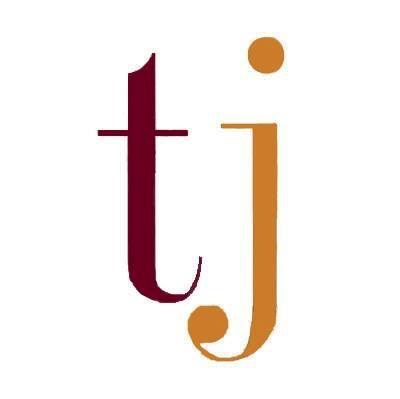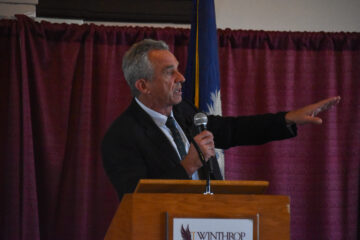For my entire college career, I have, in some capacity, worked for The Johnsonian. During my tenure as a staff member, I have been threatened by readers who wanted to take legal action against me or do what they could to get me fired, simply as a result of me doing my job. At one point years ago, even our own police department was upset with critical reporting about them, leading them to publicly criticize us.
Fake news is a touchy subject in the journalism world, and that even spreads down to the collegiate level. It has set the foundation for hostility towards journalists, especially journalists who report on politics. As editor-in-chief and as news editor before that, I always encouraged the writers on my team to go headfirst into politics, however, I often received some resistance from them. The truth was, they were afraid. Afraid of the backlash. Afraid of receiving some of the same threats that I had received for reporting on the same issues.
In these moments, it was hard to be in charge. How could I assure my staff that things will be okay, when in reality, we hear stories about the press being restricted, berated and being made out to be “the enemy of the people,” on a daily basis? There has been a growing sense of distrust towards the media, and it has put freedom of the press — a fundamental part of the first amendment — in jeopardy.
According to the Reporters Without Borders Press Freedom Index, the United States does not rank well in press freedom, and it is continually ranking lower each year. In 2017, the United States ranked 42 out of 180 countries. In 2018, that ranking dropped to 45 and in 2019 we saw another decrease, leaving the United States in 48th place.
According to the Reporters Without Borders Press Freedom Tracker, in 2019 there have been 14 subpoenas placed against reporters (several of those instances involved college journalists) and 22 journalists have been denied access to meetings, documents and other information that journalists want to share with the public. This includes an incident on March 18 where the state department only permitted “faith–based reporters” to have access to a briefing call with Secretary of State Mike Pompeo. They also refused to release a full transcript or list of attendees from the call.
Another incident involves CNN reporter Jim Acosta, who was barred from press briefings after a doctored video sent out from the White House falsely accused him of mishandling an intern while she attempted to bar him from asking the president a question. Additionally, there have been eight journalists stopped at a border, four search and seizures of equipment, eight journalists arrested (one of those being nearby in Columbia, SC) and 23 journalists attacked.
Journalism is often considered the fourth estate. It is an essential part of our democracy and it is currently being threatened by other citizens and the government. Journalism is a great tool for holding people accountable and keeping citizens aware so they can make educated opinions about the world around them. When journalists are barred access or made to seem like an enemy, it hinders them from doing their job, virtually shutting down a system of checks on the American government.
Without freedom of the press, it makes it that much easier for our government to take advantage of us. It is time to stand up for our first amendment rights in this country. With an election coming up, it is important to consider how each candidate behaves towards the press, as their stance on freedom of the press corresponds directly with their stance on democracy. Democracy is in jeopardy if we don’t hold the government accountable and if we don’t vote for candidates who will uphold the values of the freedom of the press.




